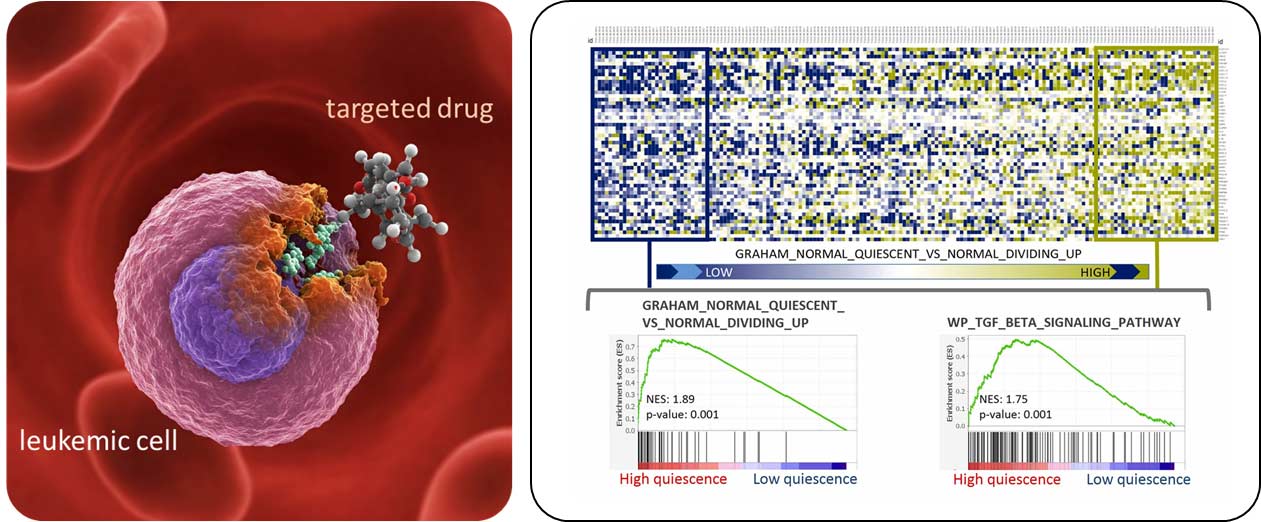Alexander Wurm Group
Pediatric Hematology and Experimental Oncology

Cancer comprises a group of lethal diseases caused by the malignant transformation of healthy cells. Biologically, it is a highly heterogeneous collection of neoplasms that share key features: increased cellular survival, enhanced proliferation, and a reduced ability to differentiate. The molecular origins of these traits vary widely and remain only partially understood.
Recent studies have shown that different cancer types share molecular characteristics that influence critical intracellular pathways and response to treatment. This has highlighted the need for novel therapeutic approaches that take into account the unique molecular profiles of both the tumors and the individual patients.
Our research focuses on identifying these molecular vulnerabilities and exploring new therapeutic avenues, with a particular emphasis on epigenetic mechanisms and precision oncology. We aim to uncover new insights that will lead to more effective, personalized treatments for a wide range of cancers, from pediatric to adult malignancies. Through this work, we strive to improve the survival and quality of life for cancer patients worldwide.
We are currently focusing on the following aspects:
Functional precision oncology in AML
Acute myeloid leukemia (AML) is a blood cancer marked by uncontrolled growth of abnormal white blood cells. Despite treatment advances, relapse and drug resistance remain significant challenges. Our research focuses on identifying new vulnerabilities in AML cells and studying how biomarkers, including patient sex, affect treatment response. Using CRISPRi and CRISPRa screening, we explore gene functions to uncover therapeutic targets, with the goal of improving precision oncology and treatment outcomes for AML patients.
Targeted therapies in colorectal cancer
Colorectal cancer (CRC) is an aggressive malignancy often diagnosed at late stages, with resistance to conventional therapies. Epigenetic changes, which affect gene expression without altering the DNA sequence, play a crucial role in CRC progression and therapy resistance. Our research focuses on identifying novel epigenetic drug targets and understanding their role in treatment resistance. Using CRISPRi and CRISPRa screening, we aim to uncover new therapeutic targets to develop more effective, personalized treatments for CRC patients.
Non-coding RNAs as tool for precision oncology
Non-coding RNAs (ncRNAs) play critical roles in regulating gene expression and cellular processes, including cancer initiation and progression. Many ncRNAs are also associated with treatment response and resistance in various cancers. Our research aims to explore the potential of ncRNA signatures as biomarkers for identifying pathway activities and developing targeted therapies, paving the way for precision oncology.

Future Projects and Goals
- Precision oncological approaches in acute leukemias and colorectal carcinoma (CRC)
- Investigation of resistance mechanisms
- Research into sex-specific differences in acute leukemias and CRC
- Characterization of epigenetic regulatory mechanisms in oncology
Methodological and Technical Expertise
- Functional genomics for ncRNAs and protein coding genes (CRISPR-Cas9, shRNA)
- Various in vitro and in vivo patient-derived cancer models
- Various models for cancer drug resistance
- ncRNA gene expression pipelines (PCR, NGS)
- RNA, DNA and protein interaction assays (such as RIP, ChIRP, ChIP, Co-IP)